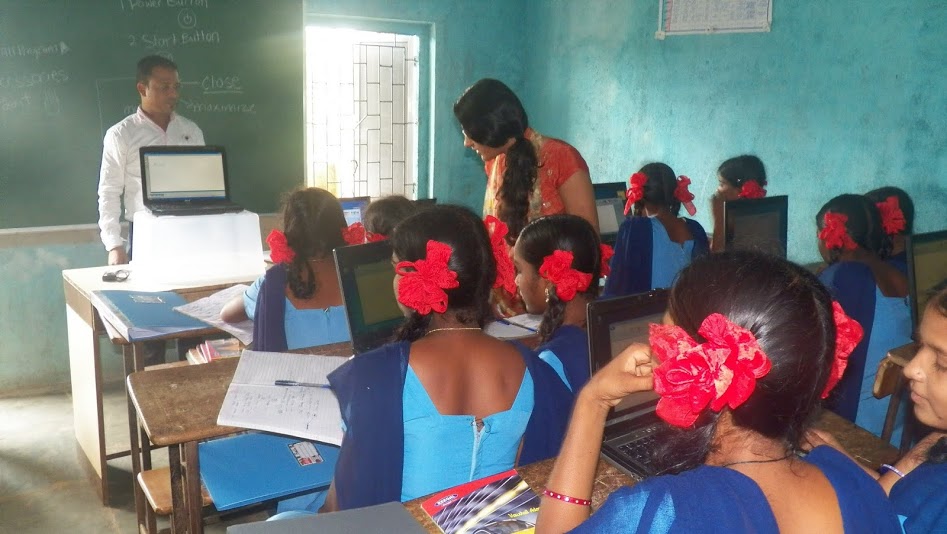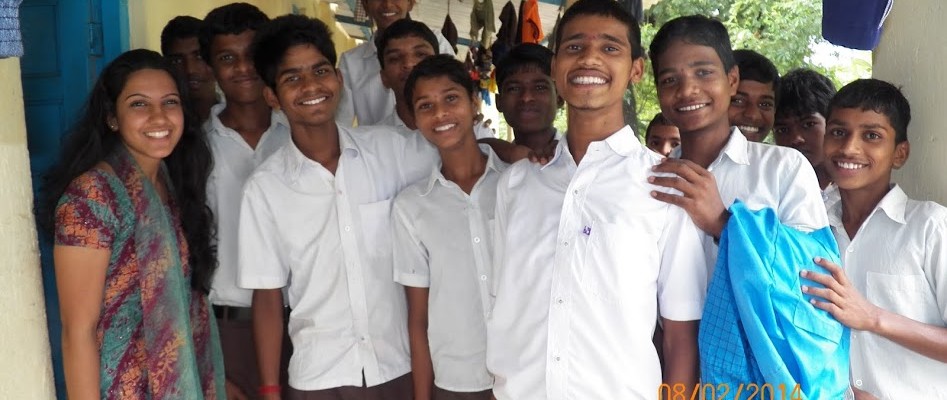 Dr. Goda, a primary doctor at the Dr. ML Dhawale Trust in Bhopoli , said to me on my first day at the school, “Reach where no one reaches and you will find ultimate happiness.” Two hours away from the heart of India’s busiest city, Mumbai, lies a rural village of tribal adivasi people who do not have access to some basic necessities. It was to this village, that I had the pleasure of spending one week teaching and interacting with the kids, helping them learn about technology and laptops. I was in India to pursue my dream: to help other children receive an education and by doing so, play a part in ending the cycle of poverty. Little did I know that the week I would spend with these kids would teach me more about myself and my life than any education that I could ever give them.
Dr. Goda, a primary doctor at the Dr. ML Dhawale Trust in Bhopoli , said to me on my first day at the school, “Reach where no one reaches and you will find ultimate happiness.” Two hours away from the heart of India’s busiest city, Mumbai, lies a rural village of tribal adivasi people who do not have access to some basic necessities. It was to this village, that I had the pleasure of spending one week teaching and interacting with the kids, helping them learn about technology and laptops. I was in India to pursue my dream: to help other children receive an education and by doing so, play a part in ending the cycle of poverty. Little did I know that the week I would spend with these kids would teach me more about myself and my life than any education that I could ever give them.
In order to fulfill this dream, the REAL board decided to donate 10 laptops to two rural schools in the tribal region of Thane. We felt that students in rural villages deserved the opportunity to use technology to further their education. After over a hundred hours of work of writing grants for laptops, and prepping the laptop with software for the students, we started on the long journey to Thane where my cousin and I spent one week teaching 10th grade students how to use laptops. Unable to speak or even understand their language, a few translators and I set out to teach about 85 students how to use the basics of a laptop, emphasizing use of Word and Paint. The first few days were extremely difficult as the students would not respond and I couldn’t communicate directly with any of them. I had no idea if they understood what they were being taught or if they were enjoying what they were doing. As the week progressed, however, I started to pick up some Marathi, and they started to understand a bit more English. I was finally able to effectively communicate with these students, understanding even better what they were struggling with and what they really enjoyed. This helped me shape the lesson plans so the students would get the most out of the experience.
Leaving the students on the last day was unbelievably difficult. Spending eight hours with these kids for six days straight lets you form such close relationships with the students. These relationships showed me the students’ strong desire to learn. These students live far below the poverty line, do not get to see their families, and live out of a carry on sized suitcase in a room smaller than an average sized classroom with 30 other students. Yet, they come into class every day eager to learn. It was encouraging to interact with students who truly want to learn, and never give up despite the circumstances. These kids are often declared stupid or incompetent, but I was able to see first-hand that they are brilliant, and all they need are the resources to explore their brilliance. Through this project and with the help of REAL, I was able to introduce these students to basic technology, teaching them one of the many skills they’ll need to be able to eventually bring their family out of the cycle of poverty.

